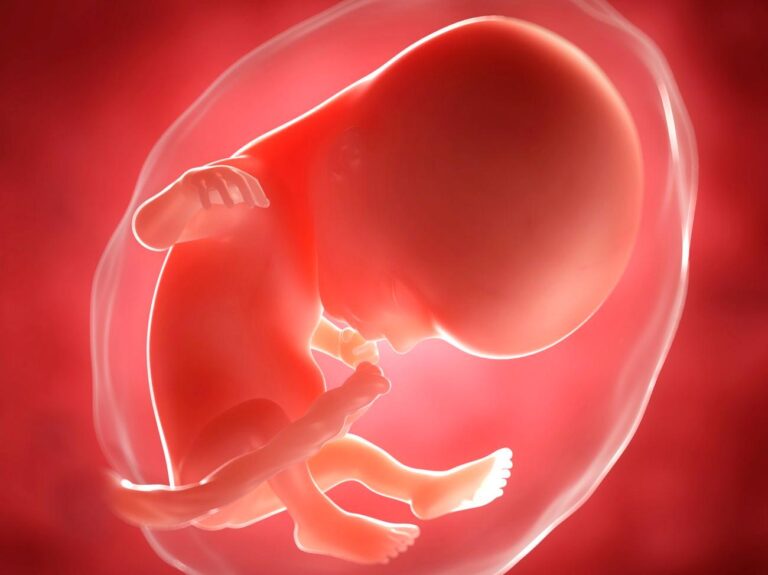14 weeks pregnant: Pregnancy Symptoms & Baby Development
Read time: 4 minutes
14 weeks pregnant is how many months?
Month 4 (Trimester 2)
Baby development at 14 week
Your baby’s kidneys are starting to function.
Placenta
Learn about the important role your placenta plays.
Vitamin K
Discover why vitamin K is so vital for your baby.
Baby development at 14 weeks

What does my baby look like? And, what size is my baby?
Your baby is now the size of a kiwi fruit – around 8.5cm in length1. The head is rounder and more proportioned to the body. Their eyelids are developing, and nails appear on their fingers and toes. Your baby’s movements will become less erratic as they start to turn and stretch their hands, wrists and legs2.
More importantly, their kidneys begin working and they may begin to swallow small amounts of amniotic fluid3. This passes into their stomach, through their kidneys, and back into the amniotic fluid as urine.
Your baby will grow two kinds of hair. Some grow a small patch of normal hair on their head, but all will grow a fine hair all over their bodies called lanugo to help keep them warm.
Pregnancy at 14 weeks (second trimester)
Body changes
The big news is that you’ve grown a new organ: the placenta. It joins your womb and baby through the umbilical cord, pumps out nutrients, oxygen and hormones, and removes waste products like carbon dioxide1.
Enlarged breasts
You may notice your breasts become larger. This can make them feel tender for some women, and others may notice back ache due to the extra weight. If you see yellow stains in your bra, it’s likely colostrum, the first milk that mums-to-be produce. If it’s a problem, start using breast pads
pregnancy symptoms at 14 weeks

Pregnancy symptoms at 14 weeks
Most women start to feel better soon after the first trimester ends, but it may take a little while longer for some symptoms, like morning sickness, to clear. There are also a few symptoms that can occur in the second trimester1 including:
- Belly pains caused by an expanding womb
- Headaches or dizziness
- Nosebleeds
- Bloating
- Indigestion and heartburn
- Swollen hands and feet
- Chloasma: a natural darkening of facial skin or the appearance of brown patches

Your ultrasound
Ultrasound scans happen between weeks 8-14, so by week 14 you should have definitely had your first scan. Ultrasound scans use harmless sound waves to show a detailed picture of your baby inside your womb. Neither you or the baby will feel a thing – except a little elation on your part at seeing your child for the first time.
Focus on vitamin K
It should be easy to get all the vitamin K that you and your baby need from a healthy, well-balanced diet. And because it’s fat-soluble, your body stores any unused vitamin K in the liver, so you don’t need to include it in your diet every day6. More good news is that vitamin K isn’t usually affected by cooking.

If your baby doesn’t get enough vitamin K during pregnancy, they can develop a rare bleeding disorder after birth. This is why most are given a booster injection just after they’re born7.
Synthetic vitamin K can be toxic8, so only ever take a vitamin K supplement if directed by your midwife or doctor
THE
SCIENCE
BEHIND
VITAMIN K
Powered by Nutricia
As well as being needed for healthy bone development and protein formation in the liver, vitamin K plays a key role in blood clotting5, enabling wounds to heal properly. This is particularly important during labour and just after you’ve given birth, when your body is recovering and starting to heal.
Foods to avoid while pregnant
There’s nothing specific to avoid during individual weeks, but throughout your pregnancy, it’s wise to give the following a miss:
Raw and undercooked meat
Unpasteurised milk and dairy products
Liver, and excessive consumption of foods high in vitamin A
